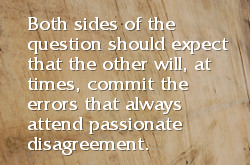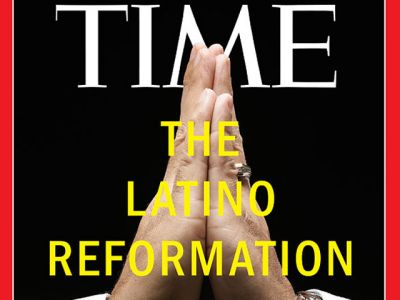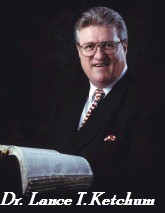Olson out at Northland
Discussion
Fundamentalism, Culture and Lost Opportunity

I woke up this morning thinking, “Not enough people are mad at me.” Hence, this post.
Actually, my sincere hope is to encourage, not more rage but more reflection on all sides of the fundamentalism-and-culture issue. I’m going to argue that the two perspectives that are most passionate and opposite on this question are both wasting an important opportunity. First, some framing.
Fundamentalism and cultural conservatism
The central question is basically this: how should Christians evaluate heavily culture-entwined matters such as music styles (chiefly in worship), entertainment, clothing, etc.? To nuance the question a little more: how should churches, ministries, and individuals connected with fundamentalism and its heritage view these cultural issues?
Two nearly-opposite sets of answers to this question have become prominent among leaders and ministries of fundamentalist lineage. My guess is that most people are really somewhere between these two attitudes, mixing points from each. But the two near-opposite views seem to have the most passionate and articulate advocates.
Discussion
BJU to change its Sunday morning format: "BJU will eliminate its Sunday morning service on campus"
Body
BJU to change its Sunday morning format
“We believe it is important for our students to develop an eagerness for involvement in the life and ministry of a biblically faithful local church,” says Dr. Jones. “Maintaining faithful church involvement during the college years is vital both to our students’ spiritual growth and to their developing a long-term commitment to the local church.”
Discussion
Cripplegate: Our Fundamentalist Future
Discussion
What in the World Is Evangelicalism, Anyway?
 Dennis Walton, a contemporary critic, wrote:
Dennis Walton, a contemporary critic, wrote:
One area in which the New Evangelicals are united is the willingness to compromise for the sake of fellowship. This spirit could possibly be identified as the genius of the movement. Allowing varying opinions in nearly every field of doctrine, they are united in a willingness to sacrifice conviction for fellowship. Evidence of this spirit is seen in a statement by E. J. Carnell, “Since love is higher than law, the organization is servant of the fellowship…Christ alone would rule the church. Laws are made for the unrighteous. Here is the final norm: Polity is good or bad to the degree that it promotes or hinders fellowship.” This statement obviously subordinates doctrine to love, or fellowship. (17)
Harold Ockenga, a leading figure in the new evangelical movement, observed:
New-evangelicalism was born in 1948 in connection with a convocation address which I gave in the Civic Auditorium in Pasadena. While reaffirming the theological view of fundamentalism, this address repudiated its ecclesiology and its social theory. It differed from fundamentalism in its repudiation of separatism and its determination to engage itself in the theological dialogue of the day. It had a new emphasis upon the application of the gospel to the sociological, political, and economic areas of life. (11)


Discussion